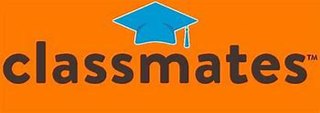Related Research Articles
A binary prefix is a unit prefix that indicates a multiple of a unit of measurement by an integer power of two. The most commonly used binary prefixes are kibi (symbol Ki, meaning 210 = 1024), mebi (Mi, 220 = 1048576), and gibi (Gi, 230 = 1073741824). They are most often used in information technology as multipliers of bit and byte, when expressing the capacity of storage devices or the size of computer files.
A class action, also known as a class action lawsuit, class suit, or representative action, is a type of lawsuit where one of the parties is a group of people who are represented collectively by a member or members of that group. The class action originated in the United States and is still predominantly an American phenomenon, but Canada, as well as several European countries with civil law, have made changes in recent years to allow consumer organizations to bring claims on behalf of consumers.

The gigabyte is a multiple of the unit byte for digital information. The prefix giga means 109 in the International System of Units (SI). Therefore, one gigabyte is one billion bytes. The unit symbol for the gigabyte is GB.
A lawsuit is a proceeding by one or more parties against one or more parties in a civil court of law. The archaic term "suit in law" is found in only a small number of laws still in effect today. The term "lawsuit" is used with respect to a civil action brought by a plaintiff who requests a legal remedy or equitable remedy from a court. The defendant is required to respond to the plaintiff's complaint or else risk default judgment. If the plaintiff is successful, judgment is entered in favor of the plaintiff, and the Court may impose the legal and/or equitable remedies available against the defendant (respondent). A variety of court orders may be issued in connection with or as part of the judgment to enforce a right, award damages or restitution, or impose a temporary or permanent injunction to prevent an act or compel an act. A declaratory judgment may be issued to prevent future legal disputes.

Lexar International is a brand of flash memory products, formerly American-owned, now manufactured by the Chinese memory company, Longsys.

BlueHippo Funding, LLC was an installment credit company operating in the USA founded by Joseph Rensin that claimed to offer personal computers, flat-screen televisions and other high-tech items for sale to customers with poor credit. In an article published November 25, 2009 titled BlueHippo files for bankruptcy: Company blames its bank; was accused of violating settlement with FTC, Eileen Ambrose reported that the company "was forced to file for protection under Chapter 11." On Wednesday December 9, 2009, the company filed for Chapter 7 bankruptcy after having its funds frozen by their payment processor. A petition to a Delaware bankruptcy judge to release the funds was denied. The company's advertised toll-free phone number and website are no longer functioning.
The multinational technology corporation Apple Inc. has been a participant in various legal proceedings and claims since it began operation and, like its competitors and peers, engages in litigation in its normal course of business for a variety of reasons. In particular, Apple is known for and promotes itself as actively and aggressively enforcing its intellectual property interests. From the 1980s to the present, Apple has been plaintiff or defendant in civil actions in the United States and other countries. Some of these actions have determined significant case law for the information technology industry and many have captured the attention of the public and media. Apple's litigation generally involves intellectual property disputes, but the company has also been a party in lawsuits that include antitrust claims, consumer actions, commercial unfair trade practice suits, defamation claims, and corporate espionage, among other matters.

classmates.com is an American social networking service. It was founded on November 17, 1995 by Randy Conrads as Classmates Online, Inc. and headquartered in Bellevue, Washington. It bills itself as the leading online social network service in the United States for bringing high school alumni together, with over 90 million members.
Milberg Coleman Bryson Phillips Grossman, PLLC is a US plaintiffs' law firm, established in 1965 and based in New York City. It has mounted many class action cases on behalf of investors.
Arts and media industry trade groups, such as the International Federation of the Phonographic Industry (IFPI) and Motion Picture Association of America (MPAA), strongly oppose and attempt to prevent copyright infringement through file sharing. The organizations particularly target the distribution of files via the Internet using peer-to-peer software. Efforts by trade groups to curb such infringement have been unsuccessful with chronic, widespread and rampant infringement continuing largely unabated.
Hagens Berman is a law firm headquartered in Seattle, Washington. As of 2022, it had about 80 lawyers. Hagens Berman is a plaintiff's law firm, especially known for large class-action lawsuits. The firm was founded in 1993 by Steve Berman and Carl Hagens in order to pursue a case against Jack in the Box that was turned down by the law firm at which they worked. A few years later the firm represented 13 out of 46 U.S. states involved in litigation against tobacco companies. Subsequently, Hagens Berman took on a number of class-action cases against large car manufacturers, oil businesses, and others. Hagens Berman has been involved in municipal climate change litigation, suing oil companies on behalf of cities. The firm has been subject to an ethics investigation and sanction over its handling of thalidomide litigation involving alleged birth defects.
The California Culinary Academy (CCA) was a for-profit school, and an affiliate of Le Cordon Bleu located in San Francisco, California. Danielle Carlisle established the school in 1977 to train chefs using the European education model. The original location on the corner of Fremont and Howard Street in the South of Market area of San Francisco, was located in the remodeled, top-floor, cafeteria in the Del Monte headquarters. The academy trained more than 15,000 people for restaurant careers through its 30-week baking and pastry chef program and 16-month culinary arts degree program. It was purchased by Career Education Corporation in 1999.
Pro se legal representation means to argue on one's own behalf in a legal proceeding, as a defendant or plaintiff in civil cases, or a defendant in criminal cases, rather than have representation from counsel or an attorney.
The Wisconsin circuit courts are the general trial courts in the state of Wisconsin. There are currently 69 circuits in the state, divided into 9 judicial administrative districts. Circuit court judges hear and decide both civil and criminal cases. Each of the 249 circuit court judges are elected and serve six-year terms.
Ambit Energy is an international multi-level marketing company that provides electricity and natural gas services in energy markets in the U.S. that have been deregulated. The company's corporate headquarters are located in Dallas, Texas, and its operations/call center headquarters are located in Barranquilla, Colombia. Ambit Energy was founded in 2006 in Addison, Texas by Jere Thompson Jr. and Chris Chambless.
High-Tech Employee Antitrust Litigation is a 2010 United States Department of Justice (DOJ) antitrust action and a 2013 civil class action against several Silicon Valley companies for alleged "no cold call" agreements which restrained the recruitment of high-tech employees.
FTC v. Balls of Kryptonite is an enforcement action brought in 2009 by the U.S. Federal Trade Commission (FTC) in United States District Court for the Central District of California. The defendant was Jaivin Karnani, a Southern California man, his company Balls of Kryptonite LLC, and several other corporate names they did business as. In 2011 the FTC secured a court order barring Karnani and Balls of Kryptonite from engaging in many of the deceptive business practices that had brought him to the agency's attention.

Democratic National Committee v. Russian Federation, et al. was a civil lawsuit filed by the Democratic National Committee (DNC) in the United States District Court for the Southern District of New York against the Russian Federation, WikiLeaks and other entities and individuals. The case, relating to Russian interference in the 2016 United States elections, was filed on April 20, 2018. The DNC's complaint accused the Trump campaign of engaging in a racketeering enterprise in conjunction with Russia and WikiLeaks. The American Civil Liberties Union, Reporters Committee for Freedom of the Press and others filed friend-of-the-court briefs expressing concern over the lawsuit's implications for freedom of the press.

The special motion to strike is a motion authorized by the California Code of Civil Procedure intended to stop strategic lawsuits against public participation (SLAPPs). They were created in 1992 with the purpose of encouraging participation in matters of public significance. The motion allows a litigant to strike a complaint when it arises from conduct in furtherance of the moving party's rights to petition or free speech in connection with a public issue. If the moving party prevails, they are entitled to attorney's fees by right. The motion is codified in section 425.16 of the Code. More than 300 published court opinions have interpreted and applied California's anti-SLAPP law. Because the right to file a special motion to strike is substantive immunity to suit, rather than a merely procedural right, federal courts apply the law to state law claims they hear under diversity jurisdiction.
References
- ↑ Third Amended Complaint Vroegh TAC
- ↑ Proposed Final Judgement Vroegh Proposed Final Judgement
- ↑ California Legal News LexisNexis
- ↑ Party Contacts Flash Memory Settlement
- ↑ Is It a Real Class Action Settlement, or Is It a Scam? Both Reason Magazine Online
- ↑ California Appellate Courts Chavez v. Netflix Inc. Appeal Status
- ↑ Netflix Settles Class Action Lawsuit BetaNews
- ↑ Western Digital Settles Capacity Suit BetaNews
- ↑ "What are the Attorneys’ Fees for the Case?" Vroegh FAQ #13
- ↑ Judge approves Netflix settlement of 'throttling' case Mercury News - AP Wire
- ↑ Leffert v. Amazon.com, Inc - Case Number: CGC-03-421769